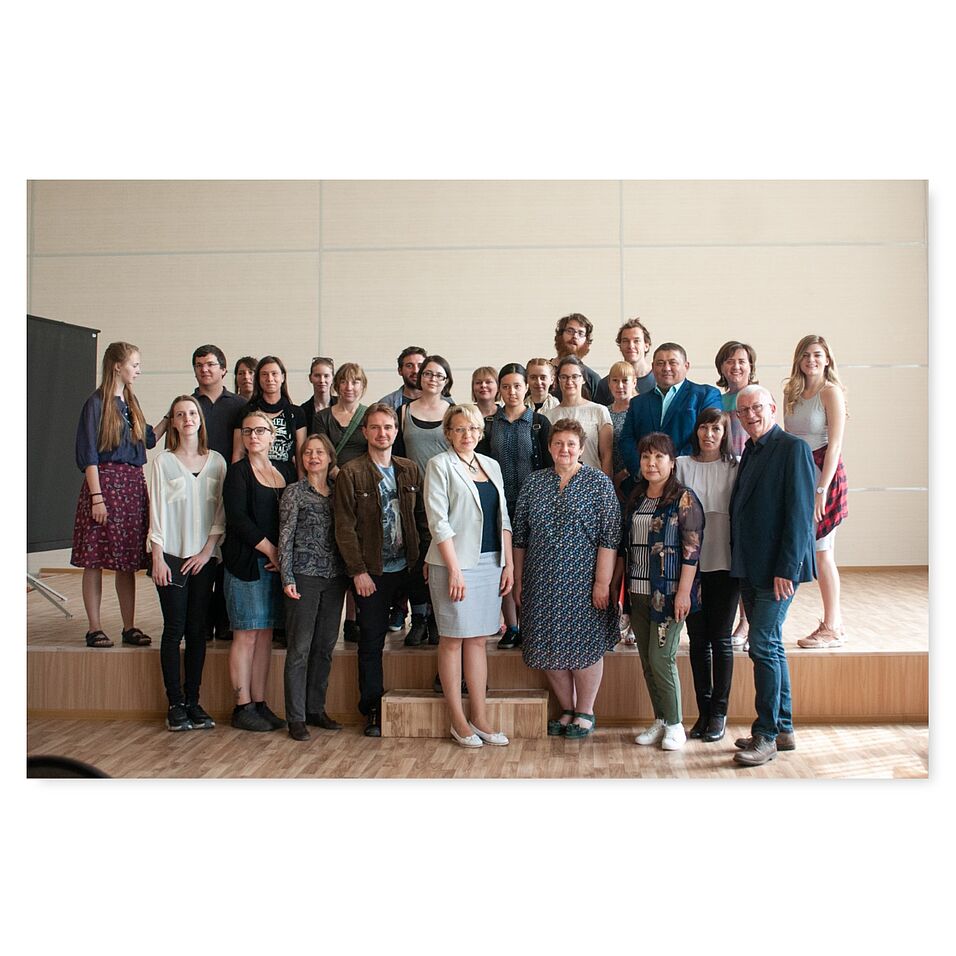The Institute for Social and Cultural Anthropology, University of Vienna organized a field practice for MA students in social and cultural anthropology. The practice was led by Professor Peter Schweitzer and postdoctoral researcher Olga Povoroznyuk. Students conducted fieldwork in the BAM region including northern parts of Irkutskaya Oblast’, Republic of Buryatiya, Zabaykal’sky Kray and Amurskaya Oblast’. The fieldwork itinerary encompassed the cities of Irkutsk, Ust’-Kut, Severobaykal’sk, Novaya Chara, Tynda, Chita, the district centers of Nizhneangarsk and Staraya Chara, as well as indigenous settlements Kholodnoye, Chapo-Ologo and Pervomayskoye adjacent to the railroad.
The field practice was organized in the framework of the international research project “Configurations of “Remoteness” (CoRe) - Entanglements of Humans and Transportation Infrastructure in the Baykal-Amur Mainline (BAM) Region”. Project members with fieldwork experience in this region, as well as MA students who participated in the course “Cultures of Siberia” and preparatory methodological seminars at the Institute for Social and Cultural Anthropology participated in the field practice. For the majority of students this field practice was their first journey to Russia. Students’ research topics correlated with the components of the research project and focused on the history of construction and contemporary role of the BAM in the regional development and life of local communities. Research questions included socio-demographic shifts, emergence of new population groups and identities, culture of indigenous peoples, art and social memory of BAM builders, eco- and ethno-tourism, social aspects of transportation and communication infrastructures, and technological modernization of the BAM. Interviews with local inhabitants, representatives of local authorities and experts, questionnaire-based survey, ethnographic photo- and video-record, research in archives and libraries were among the applied research methods.
We want to express our gratitude to our colleagues from Irkutsk State University, Sochava Institute of Geography, Transbaikal State University and Transbaikal Regional Studies Museum in Chita for their assistance. We are also grateful to representatives of local and district authorities in Ust’-Kutskiy, Kalarskiy and Tyndinskiy Districts, associates of educational and cultural institutions, in particular to, the House of Culture “Zheleznodoroznik” in Severobaykal’sk, Evenki culture center in Nizhneangarsk, Baikal-Amur Institute for Railway Transport in Tynda, Pervomayskoe High School, as well as to BAM-builders’ associations in Ust’-Kut and Severobaykal’sk for organizational support and interest to our project.
Research results obtained in the course of the field practice will be analyzed and published in scientific papers, reports and lectures, as well represented at the project’s dissemination webportal “Life of the BAM” (lifeofbam.com) in Russian and in English.

